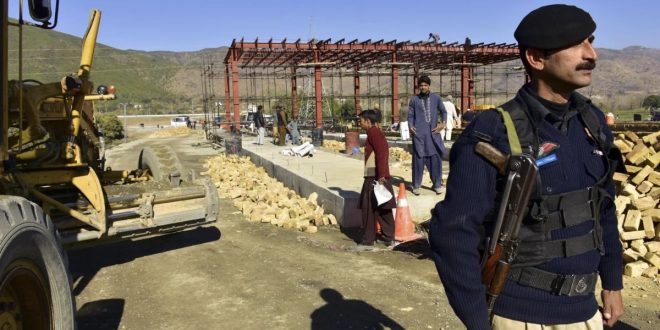Beijing: China’s ambitious project China-Pakistan Economic Corridor (CPEC) (CPEC ) project will now reach Afghanistan. Regarding this, China has signed an important trilateral agreement with Pakistan and the Taliban government. Under this, the China-Pakistan Economic Corridor (CPEC) project is to be extended to Afghanistan. This step has been taken to strengthen the economy of Afghanistan and increase connectivity in South Asia. This new alliance between China-Pakistan and Afghanistan can prove to be dangerous for India in many ways.
Let us tell you that CPEC is an important economic cooperation project between China and Pakistan, which aims to promote trade, transport and energy connectivity between the two countries. Under this project, attention has been paid to the construction of roads, railways and energy related infrastructure, so that freight transport and economic cooperation can be accelerated. This project also gives China a strategic edge. This is the main reason for India’s concern.
Afghanistan included for the first time
Now Afghanistan will be included in the CPEC project under this trilateral agreement. This will give Afghanistan new business opportunities, as well as open new avenues for infrastructure and economic prosperity. This agreement with the Taliban government can improve the infrastructure in Afghanistan, which can also generate new employment opportunities. Experts believe that this project will benefit the economy of Afghanistan and strengthen trade and connectivity across South Asia. The expansion of CPEC to Afghanistan can improve the economic condition of the region and open new avenues for prosperity.
Possible impact on India from the expansion of CPEC to Afghanistan
The expansion of CPEC to Afghanistan can be harmful for India in many ways. According to experts, the expansion of CPEC to Afghanistan can be worrying for India from diplomatic, geopolitical and strategic point of view. This can directly affect India’s regional security, influence and trade strategy.
1. Geopolitical influence and weakening of India’s regional hold
According to Dr. Abhishek Srivastava, Assistant Professor, School of International Studies, Jawaharlal Nehru University (JNU), the extension of CPEC to Afghanistan will increase the influence of China and Pakistan in Afghanistan, which may limit India’s role there. India has so far maintained influence in Afghanistan through large development projects (such as Zaranj-Dilaram road, Parliament House, hospital), which may now come under pressure from the China-Pak alliance.
2. Strategic encirclement
China is already surrounding India from all sides with ports like Hambantota (Sri Lanka), Gwadar (Pakistan), Chittagong (Bangladesh). Now with CPEC reaching Afghanistan, China will also get strategic depth on India’s western front, which is seen as the “String of Pearls” strategy in India.
3. Security challenges due to China-Pak-Afghan nexus
The association of CPEC with Afghanistan under Taliban rule can pose a security threat to India, especially in the context of Kashmir. Pakistan can argue that India is a “non-local” party and does not have the right to interfere in projects like CPEC.
4. Direct access to Afghan resources for China
Afghanistan is rich in lithium, rare minerals and other natural resources. Through CPEC, China will get easy and secure access to them. It will become difficult for India to have competitive access to these resources, which can affect India’s technological and industrial strategy.
5. Impact on Chabahar Port and INSTC
India had planned to connect with Afghanistan and Central Asia through Chabahar Port (Iran) and INSTC (International North-South Transport Corridor). But now the extension of CPEC to Afghanistan will strengthen the China-Pakistan option, due to which these efforts of India may face competition and political obstacles. In such a situation, the extension of CPEC to Afghanistan is a diplomatic and strategic challenge for India. It can not only reduce India’s sphere of influence, but can also strengthen the China-Pakistan alliance, which can be risky for India’s national security and regional strategy in the long run.
 Indian Thought Latest News & Views
Indian Thought Latest News & Views



